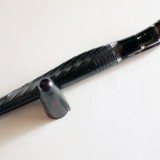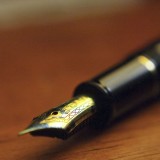A Writer’s Backup Strategy: Part 2 – Local Backup Options
The most common danger facing your electronic documents is the loss of a file from your hard drive. Data loss can be caused by several factors: human error (accidentally deleting a file, saving over an existing file), hardware failure (hard drive failure, file corruption, the death of a computer), even malicious intent (a virus or trojan that infects or deletes files). Your first line of defense is to keep easily restored backups of your work on a regular basis, so that if (when?) something goes wrong, at worst you’ll only lose work since your last backup.
Local backups can be stored on one (or more) of the following media:
- External hard drive: For around $80-$130 US, you can get an external hard drive that connects to your computer via USB or FireWire and is big enough to hold your entire computer’s contents.
- USB flash drives: Small, pocketable flash drives, usually smaller than a pack of gum, are now available in sizes up to 16GB (with 32 GB drives starting to come to market). Because text files tend to be pretty small, a writer can easily store his or her entire career’s output on a single thumb-sized drive.
- CD or DVD: A single 650 MB CD will hold years of work; a 4.7 GB DVD many times that. Handled properly, CDs and DVDs should outlast just about any hard drive or flash-based storage — under archival conditions, they can even outlive you.
- Network-attached storage/home server: An “NAS” is essentially a hard drive that connects to your router and is accessible from any other computer on the network. Several companies are now introducing full-fledged servers for home users, which also attach to your network and offer services, including automated backups, to all the computers in the network. Some of these devices can hold terabytes of information.






$0 online backup solution is with gmail with some other softwares such as gspace or backup to email http://backup2e.com
If you have a little money to spend for complete peace of mind, take a look at the story about failing hard drives here: http://www.hanselman.com/blog/TheCaseOfTheFailingDiskDriveOrWindowsHomeServerSavedMyMarriage.aspx